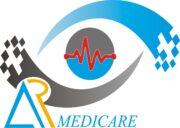Adult Strabismus (Squint) / Ocular Motility
This service is for patients who have strabismus (squint, a turn in the eye) or a problem with their eye movements (motility). This can lead to double vision (diplopia), or the appearance (cosmesis) of a strabismus may be a source of anxiety.
Our specialists work closely with the orthoptic department to diagnose the underlying cause and offer treatment to correct double vision and, where appropriate, surgically straighten the eyes.
If you are referred to one of these clinics, you will usually see an orthoptist first. Orthoptists are specialists in measuring eye movements and strabismus (squint).
Once detailed measurements have been taken, you may see one of our specialist ophthalmologists who will assess your medical history, the results from the orthoptic examination, and may examine your eyes using the microscope to get more information.
Further tests, such as pupil reactions, visual fields (a measure of your peripheral or “side” vision) or blood tests may be required to determine the cause of eye movement problems.
Eye movement (motility) problems have a variety of causes, and we will usually refer to other specialists or your GP to manage the underlying issue. Some examples include trauma, thyroid eye disease, diabetes, high blood pressure, and stroke.
Longstanding strabismus (squint) does not usually need so many investigations. Many squints are present from a young age. This kind of squint may be corrected by surgery to move the muscles, but this is not appropriate in all cases, so the ophthalmologist (eye doctor) will discuss your options on a case-by-case basis.
Eye movement (motility) problems are treated depending on their underlying cause, usually in conjunction with your GP or an appropriate specialist. Many get better with time, but may require a temporary prism fitted to your glasses to prevent double vision. If you don’t wear glasses, it can be fitted to a pair of glasses with plain (unpowered) lenses. The orthoptists in the hospital will usually do this. For those who need permanent prism correction, this may be glazed into a proper spectacle lens as a long-term solution.
Sometimes prism cannot correct the double vision, either because it is too variable or because the brain fails to line up the two images. Patients in this situation often prefer to cover one eye with a patch, frosted spectacle lens, or occlusive contact lens. Patches are usually provided by the hospital, and our optometry department can fit and monitor the health of the eye if a contact lens is required. Your normal optician will usually deal with frosted or opaque spectacle lenses.
Sometimes an underlying spectacle prescription may be the cause of strabismus (squint). Our hospital optometrists may carry out an eye examination, sometimes using eye drops to temporarily relax the focusing muscles of the eyes, if this is suspected.
Strabismus (squint) surgery can be carried out to improve cosmesis and prevent diplopia in some cases. Only certain conditions with stable measurements are suitable for this procedure. This procedure involves surgically repositioning or shortening the muscles which control eye movement. It is usually carried out under general anaesthetic as a day case, meaning you can go home the same day. Sometimes adjustable sutures are used so that small adjustments can be made after surgery when the orthoptic measurements have been repeated.
Sometimes botulinum toxin (Botox) injections to the eye muscles may be used to assess or treat squint.
Mr James Benzimra
Mr Daniel Byles
5-km Darkhana Road, Plot C, Kamay Shah PirMahal ( T.T. Singh Punjab).
If you have any questions regarding your operation, please contact Eye Day Case Unit on 03001363515. They are available 9am-5.30pm, Monday to Friday.
At AR Medi Care Hospital, the receptionists will guide you. Phone enquiries should be directed to RD&E Wonford as above.
Our team provide cataract assessment and treatment at AR Medi Care Hospital.
Children with eye movement (motility) problems or strabismus (squint) are managed by the orthoptists and our paediatric team.
